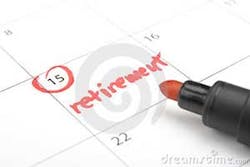6 common mistakes to avoid when planning your dental practice exit strategy
BY AARON SCHULMAN
When you get to the point that you want to sell your dental practice, you are most likely ready. When you look back on the time it took to build your practice, you might be amazed to see where you are in your life. You have met generations of clients and made an impact on their lives. You have been financially astute so that you can retire when the time is right. And once that time is right, it is important to make the transition as smooth as possible so you can get to the point where you enjoy life and are not worrying about your business, retirement finances, or the lifestyle you worked so hard to achieve.
Dentists today are fortunate in that they are able to plan and execute their transitions earlier than their predecessors. With proper financial planning, dentists can retire and enjoy a healthy and active life earlier than in previous decades.
In order to have an enjoyable retirement, dentists should carefully plan for the transition into retirement. It is recommended that dentists who are in transition maintain their practice at the fullest active patient level during transitioning time. It is also recommended that dentists work with a veteran dental practice broker, or dental practice transition expert, to make the transition as successful as possible.
Before announcing a transition, dentists should schedule a confidential meeting with a dental practice broker. While no one doubts the expertise and intelligence of any dentist, a dental practice broker knows how to buy and sell the practice — the dentist knows teeth and the dental practice broker knows business transitions. A broker will know how to get the best price for the practice, and how to take the proper amount of time to make the shift from the selling dentist to the acquiring dentist smooth for everyone.
It might be tempting for the retiring dentist to reduce his or her time in the office, but a professional dental office broker will advise against this. In order to make a dental office enticing to new dentists, the office needs to be functioning at its peak to prove that it is a viable investment. Outgoing dentists should be aware that when they reduce the offices’ income, it is not as attractive as an office taking in a full spectrum of patients and earning the income that comes with those patients. The time it takes to sell an office can be adversely affected by slowing down its revenue stream. A strong history of actively growing patients shows a potential buyer that he or she is making an investment in a solid business and not a deflating asset.
There are many steps to a successful practice transition
Dentists preparing to transition need to be sure that their offices are compliant with federal and local regulations. These include not only ADA and OSHA regulations, but also those regarding medical and radiation waste disposal, financial regulations, and HIPAA records. Government and regulating agencies can place large fees on dental offices that are not in compliance, and being out of compliance could make a potential buyer look elsewhere. Compliance information should be easy for the dental office broker to find and show to a potential buyer. For example, it should be stored in a binder or a flash drive.
Dental practice brokers highly recommend that each dental office have a manual for office staff. This should include vital information about job descriptions, benefits, and other work-related details. The manual should also be in an easy-to-find location.
It is not uncommon for dental offices to have employees who are family members or friends of the dentist. However, this staffing situation can be a deterrent to a potential buyer, who would prefer to have an office staff that is not related to the outgoing dentist. Because of this, an outgoing dentist should create a plan so the employees that are related to him or her have a final date of employment. This way the staff can easily transition to the new dentist without having too much loyalty to the previous owner. This allows room for the incoming dentist to employ family and friends without complications.
The transitioning dentist needs to pay attention to aging equipment. It is important fir a dental office to stay current with the latest technology. When it comes to equipment and office necessities, it is important to keep current records. Technology records should include the date of purchase, dates of repairs or upgrades, and paperwork regarding warranties and contracts. An updated, well-organized dental office will be much easier to sell than an outdated office filled with paperwork.
ALSO BY AARON SCHULMAN:5 surefire ways to increase your dental practice’s value before you sell
7 important considerations for your retirement goals: Part 2
While cleaning out the office and upgrading technology, it is recommended that personal financial records be removed from the financial records that the buyers will see. Since most dentist offices are small, family businesses, there are usually personal transactions recorded in the financial records. Buyers only want to know about the business costs and expenses, so during the transition, dentists should ensure that the records reflect only the business. The dental practice broker will be able to assist the seller to make sure the records are properly recorded, and that they are clean and enticing to potential buyers.
Since dental office brokers have worked with many dentists, they understand there are many emotions attached to a transition. It is challenging for the dentist to maintain a fully functioning office while anticipating the excitement and stress of retirement.
ALSO ABOUT DENTAL PRACTICE RETIREMENT: A few things to think about before starting a retirement plan
When dentists have questions about transitioning, it’s a good idea to work closely with a dental practice broker to be sure questions are answered properly. The dental office broker knows how to make the office attractive to potential buyers, and how to negotiate the sale so the outgoing dentist gets top dollar. The job of the practice broker is to help both parties live through the process of selling and buying with the least amount of stress.
Aaron Schulman is on the Advisory Board for 5th Avenue Acquisitions & Venture Capitalists, a dynamic team of dental transition experts located throughout the U.S. They focus on helping dentists through the often rigorous process of buying or selling dental practices with peace of mind. For more information about them, visit www.5thaavc.com.






